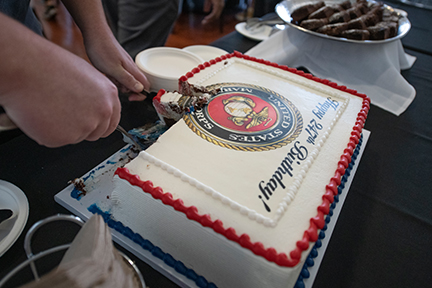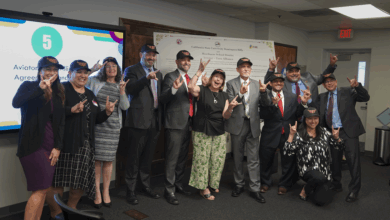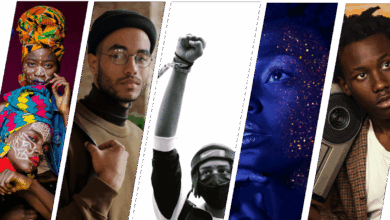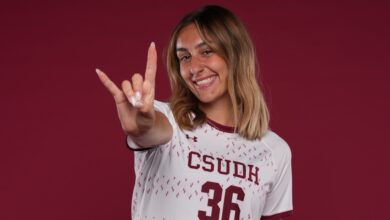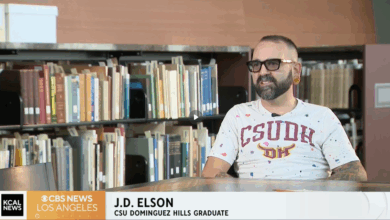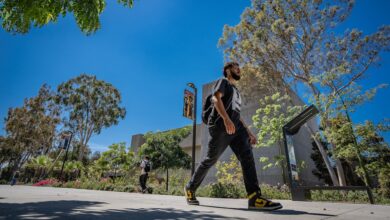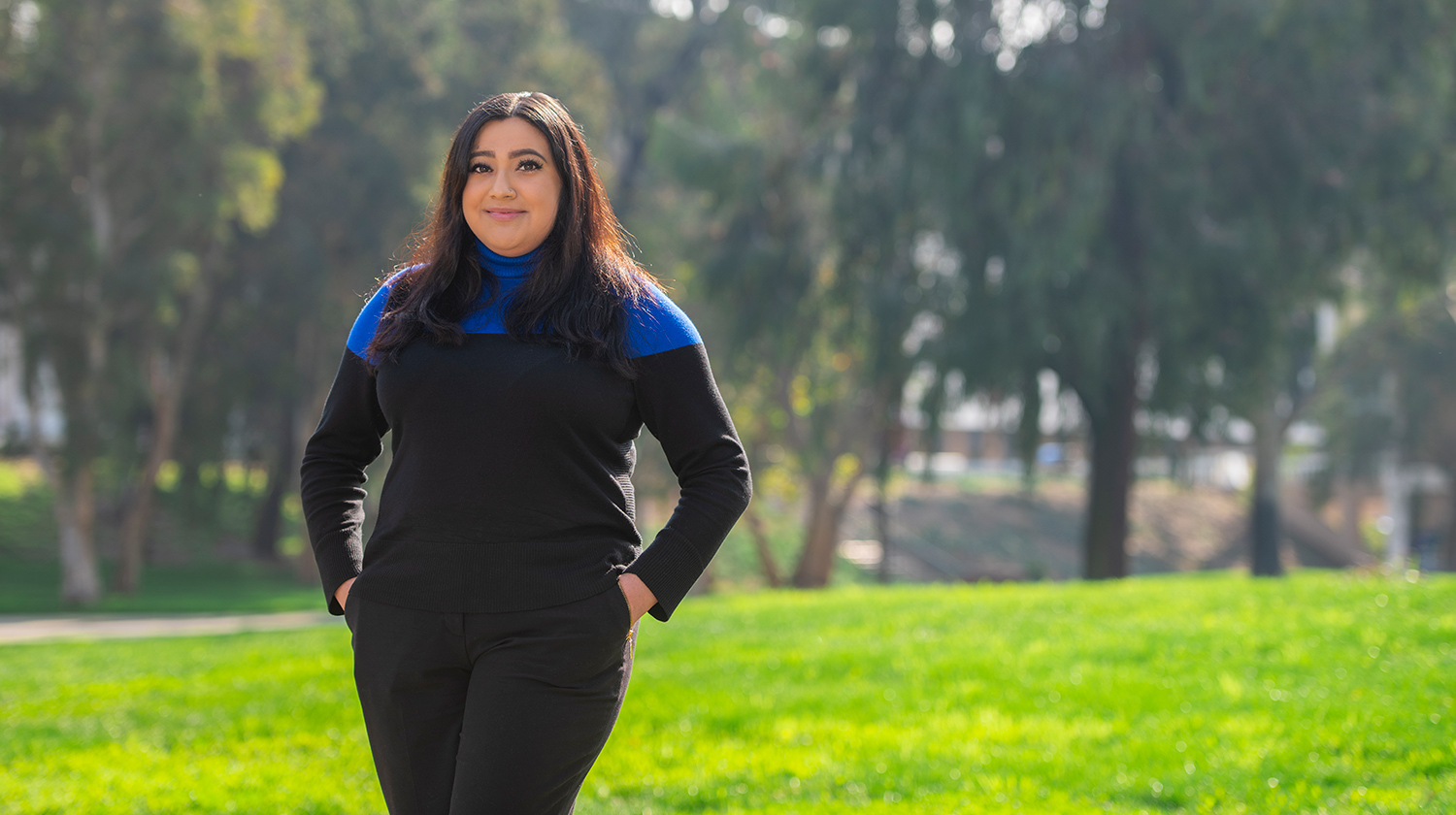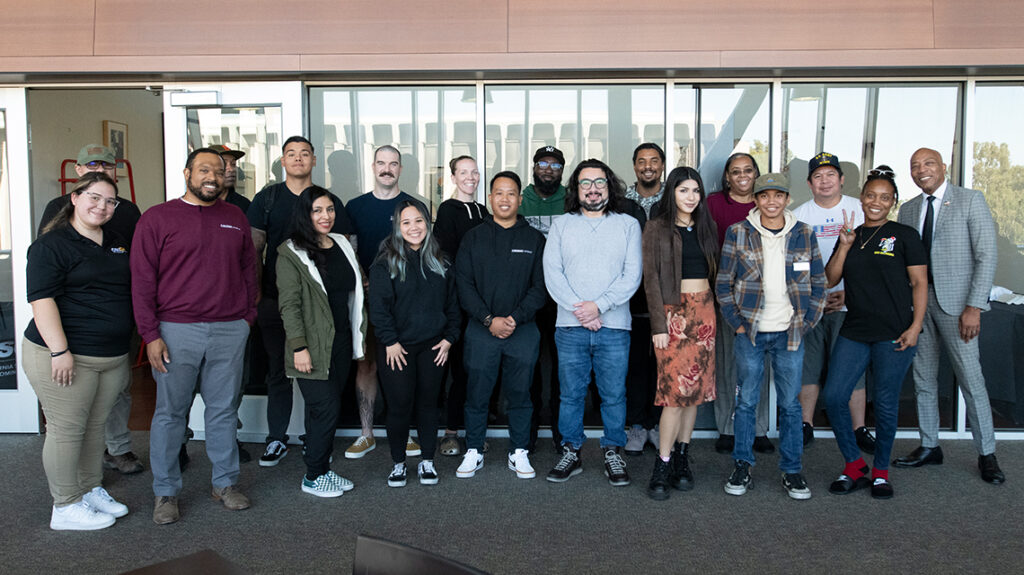
Tucked away on the third floor of Leo F. Cain Library, the Veterans Resource Center (VRC) may be small, but it exerts an outsized influence on the lives of students making the challenging transition from military service to academic life.
“The Veterans Resource Center is the reason I’m here today and about to graduate with my bachelor’s degree in business administration in December,” says Luigi Torres, 30, a former artillery cannoneer in the U.S. Marines. “It’s the family that you don’t think you need and that you don’t know you have.”
The VRC currently serves about 350 student veterans at CSUDH -250 who attend using the GI Bill, and another 100 who get support through the Cal-Vet program. VRC’s small but dedicated staff provide critical academic support, personal coaching, and assistance in understanding what benefits are available to student veterans and how to access them.
It’s also much more than that, says Brett Waterfield, director of the Office of Educational Partnerships at CSUDH, which oversees operations at the VRC. “Student veterans are probably one of our most unique communities on campus. It’s hard for anyone who is not a veteran to truly understand the experiences they bring with them to campus.”
This is what makes the work of the VRC so important and worth considering now as we prepare to honor armed services members on Veterans Day, says Waterfield. In addition to helping student veterans adjust to the rigors of academic life, the VRC also helps the university “understand the culture around student veterans and how best to contribute to their success,” he says.
DaWayne Denmark, director of the VRC at CSUDH, spent six years in the U.S. Air Force as a firefighter before graduating from Chapman College and running the veterans resource center at Concordia College. He’s seen a lot of student veterans make the transition to higher education, and he says the key to providing effective help is to make it personal.
“We want to build relationships. We don’t want the work we do to be merely transactional,” says Denmark. “You need help getting books or figuring out what classes to take? We can do that. But we want to invest time in getting to know student veterans on a deeper level to find out where they want to be and how we can help get them there.”
Rosalva Rios, a former U.S. Marine administrative specialist, grew up not far from CSUDH in Compton. She joined the military because she felt she was destined for a life of service. Rios says the VRC helped clarify her future goals. “I knew I had a passion for helping people, but I didn’t really know what to do about that.” Now she’s on track to complete her degree in child development in 2024 and plans to get her master’s degree in social work.
Visit the VRC’s Resources page to learn more about the programs and opportunities available to student veterans.
Encouraging student veterans to pursue post-graduate degrees is something Waterfield is most proud of about the work the VRC does. “It helps our veterans see themselves not just as students trying to get a degree but as scholars who are fully capable of mastering a discipline and becoming lifelong learners.”
It’s not always easy for student veterans to ask for the help they need, says Rodrigo Rodrigo, program advisor at the VRC. “They’ve accomplished so much at a young age. They’ve deployed, carried out difficult missions, and often feel like they can handle anything all by themselves. But they didn’t do any of that on their own. They had support from commanding officers and their fellow soldiers. You won’t get to where you want to be without help from others. That’s where we try to fill the gap.”
When the VRC isn’t helping student veterans take full advantage of their GI Bill or audit their course loads to make sure they align with their educational plans, it serves as a refuge for fellow veterans to study, socialize, or simply take a quiet moment for themselves. “It’s a community here,” says Edgar Alvarado, a former U.S. Army infantryman who started at CSUDH in 2019.
The 30-year-old from Bell Gardens is a first-generation student who needed a lot of guidance to find the right career path. He says it hasn’t been easy making connections with students from non-military backgrounds, and that the VRC has been a social anchor for him. “It’s a wonderful place to come, even if you don’t have a specific question about anything. Sometimes, you just want to talk, and they always welcome you in.”
Denmark knows that each student veteran comes to the VRC with a common background but unique needs. They all want to make the most of their experience and to secure a better future for themselves and their families, and they’ve chosen education as the best pathway to that success.
“A lot of our student veterans are transfers from community colleges. We’ll only have them for two or three years. I tell them that by coming here, they’re not simply making a two- or three-year decision. They’re making a 20- to 30-year decision,” says Denmark. “All these things that we provide at the VRC have the opportunity to change not only their life, but the lives of generations to come.”

